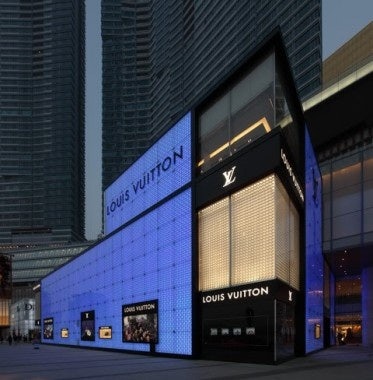Steve Wynn Spearheading Efforts To Inject Culture Into Former Portuguese Colony#

Though the city remains best-known as a China's only legally allowed gambling enclave, and has found its seedy reputation difficult to shake, recent years have seen redoubled efforts by resort operators and tourism authorities to rebrand Macau as a destination for cultural enrichment and luxury shopping. With mainland Chinese outbound tourism surging over 20 percent in 2011, and Chinese tourist-shoppers flocking to places like Hong Kong, New York and Paris to leave millions with high-end retailers while soaking up culture, luring mainlanders to Macau via a diverse range of offerings has taken on new urgency. Last month, in the hopes of boosting his city's cultural profile, local media mogul Ricardo Pinto launched the inaugural Script Road Literary Festival, an event geared towards plugging Macau’s rich artistic and cultural history, which Pinto admitted is typically overshadowed by the city’s massive gaming market. (Which surpassed Las Vegas to become the world's largest back in 2006.) Though the city has struggled to attract luxury brands on the scale of Hong Kong, Macau is slowly gaining a reputation among mainland Chinese consumers as a shopping, as well as gambling, haven, with the former Portuguese colony sharing space with the former British colony in the first-ever Louis Vuitton Hong Kong/Macau City Guide, released late last year.
Though media figures, tourism authorities, luxury retailers and local celebrities continue to work together to promote Macau as more than a gambler's paradise, perhaps no one has been as high-profile in his efforts to remake the city as an entertainment destination as Steve Wynn. Working tirelessly to rebrand the city, as he once did in Las Vegas, in recent years Wynn has sought to make his name synonymous with culture and the arts -- as well as gambling -- in Macau. Last year, Wynn engaged in one of his most high-profile PR moves in the city, unveiling a set of Qing Dynasty vases he purchased at auction in London for £8 million (US$12.8 million). As Jing Daily wrote last October,
Wynn said returning the vases “back to Macau and China, where they originally had their roots and story” is a continuation of his company’s policy “of adding to the cultural enrichment of our community here in Macau.” As Wynn added, “This pristine quartet of Buccleuch vases has tremendous artistic and historic value, and we are proud to have them on display in our resort lobby, for the Macau community and our visiting guests.” The vases will be displayed at the Wynn Macau until around 2015, at which point they will be moved to the to-be-constructed Wynn Cotai.
This week, Forbes looks at Wynn's efforts to go against the current "mass" thinking of casino and resort owners in Macau and inject some "class" into the city via arts and culture. As Forbes notes, the city has become increasingly critical for figures like Wynn and his global rival Sheldon Adelson. Last year, Wynn Resorts made 72 percent of its US$5.2 billion in revenue from Macau, while Adelson's Las Vegas Sands made a whopping 82 percent of its $9.4 billion revenue from Asia in the same period. Between the two, Adelson and Wynn have invested a staggering $15 billion in Asia over the past decade, and neither wants to fall behind given the growing presence of mainland Chinese high-rollers in gambling enclaves like Singapore and Macau.
Via Forbes:
Unlike Adelson,
Wynn is going after the higher-income Chinese who invest in art--and love high-stakes gambling with a fervor
. Thanks in part to his detailed attention to luxury and pampering service, Wynn derives 80% of his business from Macao’s so-called VIP gamblers (the overall rate is 70%). According to Jake Fuller of Lazard Capital, Wynn’s casino produces profit at a rate of $6,943 per table each day compared with $3,856 at the Adelson properties.
Despite the massive investments they've made in Macau, the article points out that both Adelson and Wynn have their eyes on a much larger, but still unattainable goal: opening sprawling resorts in mainland China. This desire goes a long way in explaining why both men have gone to great pains to foster good relations with Beijing:
Right now, in all of China, it’s legal to gamble only in Macao, 11 square miles of densely packed humanity. It’s not even legal to collect a gambling debt on the mainland. But most observers expect that the Chinese government, recognizing Macao’s logistical limitations and drawn to the twin lures of development and taxes, will inevitably bring gambling onto the mainland.
Thus Adelson and Wynn must perpetually scramble to stay on the government’s good side. Adelson is credited with helping smooth over China’s 2008 Olympics bid with American skeptics. For Wynn’s part, he’s been studying Mandarin and has pledged $135 million to the University of Macau, which sits on Chinese-owned land...Four years before he bought the Qing vases, Wynn spent $10 million on a 650-year-old red vase from the Hongwu period, which he promptly donated to the Macao government’s cultural affairs bureau. Such is the ante for what will eventually prove the biggest jackpot in gambling history.
